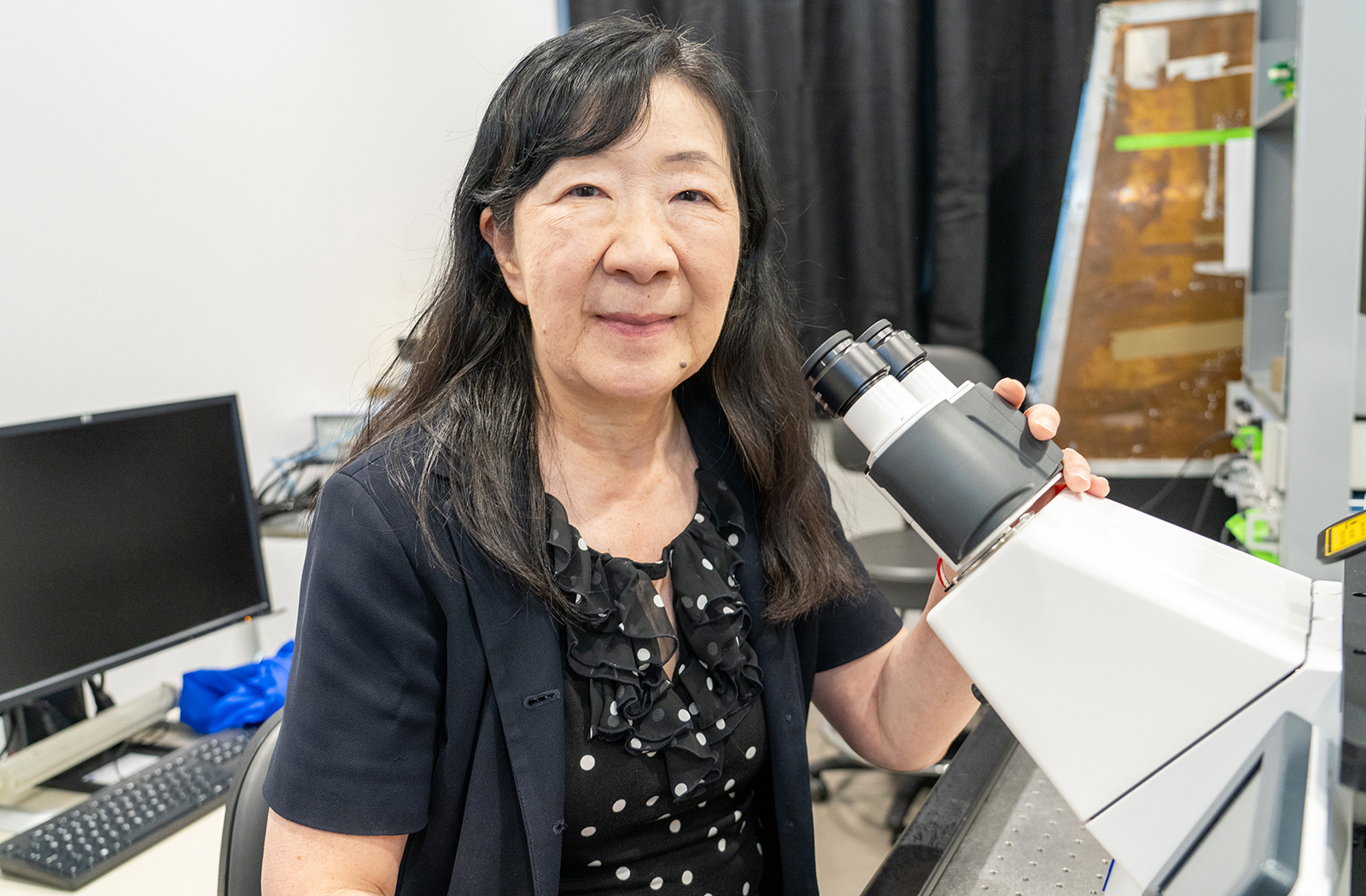
Societal Stressors Shown to Have Serious Impact on Heart Health

Life, with all its twists and turns, can prove to be stressful for nearly everyone. What most fail to account for, though, is how those stressors can impact heart health.
That effect and how it is triggered within one’s signaling pathways is what Nipavan Chiamvimonvat, MD, chair and professor of the Department of Basic Medical Sciences at the University of Arizona College of Medicine – Phoenix, and a team of researchers of the University of California, Davis have been working to better understand as part of a multi-year grant from the American Heart Association (AHA).
The work is crucial. Chronic psychosocial stresses (CPSS) have been directly linked to cardiovascular disease development and exacerbation, including coronary heart disease and atrial fibrillation (AFib) — the most common type of abnormal heart rhythm seen clinically.
“AFib causes about 1 in 7 strokes, according to the U.S. Centers for Disease Control and Prevention, and it is associated with a significant increase in the risk of morbidity and mortality,” Dr. Chiamvimonvat explained. “Current treatment paradigms remain inadequate for the more than 12 million people who are expected to have AFib by 2030, according to the AHA.”
High blood pressure, obesity, sleep apnea and diabetes are all negative health outcomes associated with AFib, but they are also exacerbated by CPSS. “The roles of societal and environmental stressors can significantly impact heart health by increasing stress hormones, leading to those negative effects on the heart,” Dr. Chiamvimonvat said. She also noted that these societal and environmental stressors disproportionately affect underserved populations.
Since the project, Psychosocial stRessors and Exposomics on CV health in underServed multiEthnic populations in Northern CA (PRECISE), began in 2023, Dr. Chiamvimonvat and her team have utilized basic science combined with computational study to investigate mechanisms through which a constellation of environmental and social stressors — noise, overcrowding and sleep disruption, for example — impact cardiovascular function. The next step will be to devise how to best treat the dysfunction caused by CPSS.
“Our studies are focusing on new mechanisms underlying the effects of societal and environmental stressors that would allow us to design new treatments and preventive strategies to reduce health-risk by targeted community-driven interventions,” Dr. Chiamvimonvat said.
And they are working to put that research into practice. “In collaboration with multiple physicians and investigators, we are now moving toward designing new clinical trials for a small molecule to combat atrial fibrillation, in the hope of bringing new therapies into the clinic,” Dr. Chiamvimonvat said.
Dr. Chiamvimonvat’s project is one of 15 Strategically Focused Research Networks commissioned by the AHA, ranging from disparities in cardiovascular disease and stroke to cardiometabolic health/type 2 diabetes. The networks comprise a nearly $300 million investment to discover new ways to diagnose, treat and prevent heart disease and stroke.
About the College
Founded in 2007, the University of Arizona College of Medicine – Phoenix inspires and trains exemplary physicians, scientists and leaders to advance its core missions in education, research, clinical care and service to communities across Arizona. The college’s strength lies in our collaborations and partnerships with clinical affiliates, community organizations and industry sponsors. With our primary affiliate, Banner Health, we are recognized as the premier academic medical center in Phoenix. As an anchor institution of the Phoenix Bioscience Core, the college is home to signature research programs in neurosciences, cardiopulmonary diseases, immunology, informatics and metabolism. These focus areas uniquely position us to drive biomedical research and bolster economic development in the region.
As an urban institution with strong roots in rural and tribal health, the college has graduated more than 1,000 physicians and matriculates 130 students each year. Greater than 60% of matriculating students are from Arizona and many continue training at our GME sponsored residency programs, ultimately pursuing local academic and community-based opportunities. While our traditional four-year program continues to thrive, we will launch our recently approved accelerated three-year medical student curriculum with exclusive focus on primary care. This program is designed to further enhance workforce retention needs across Arizona.
The college has embarked on our strategic plan for 2025 to 2030. Learn more.